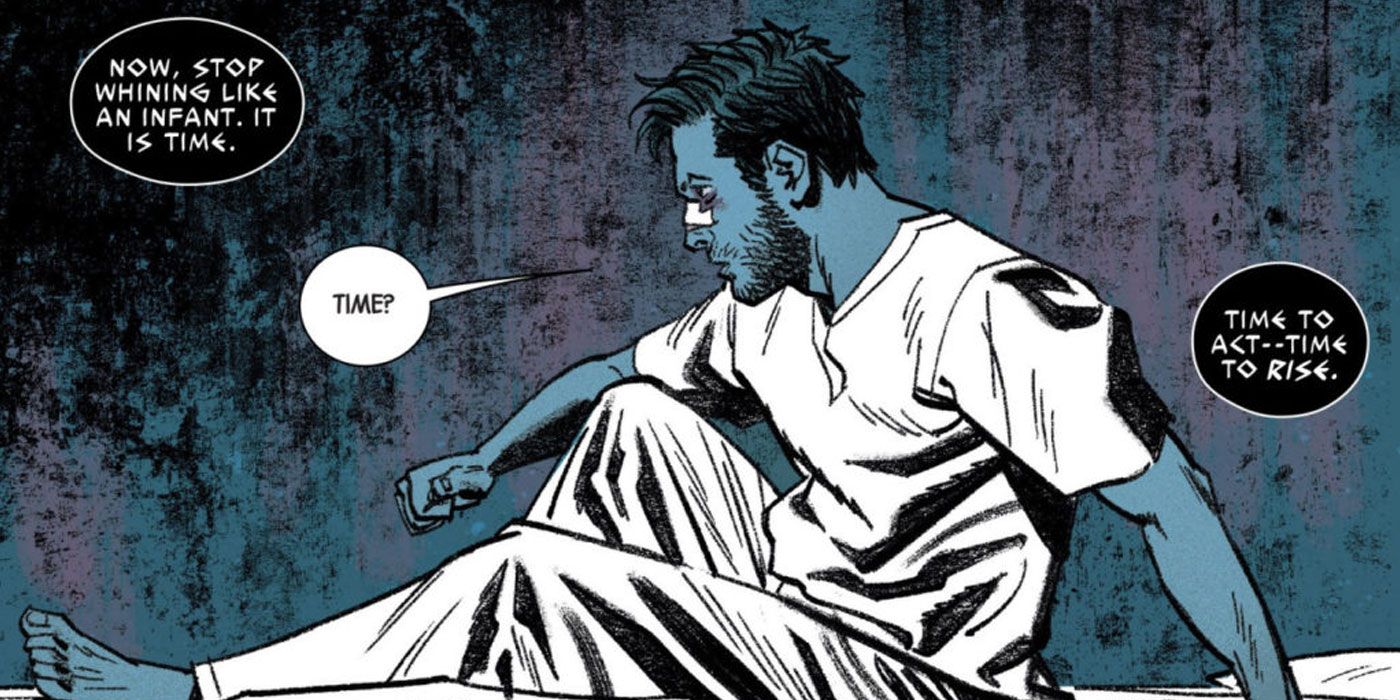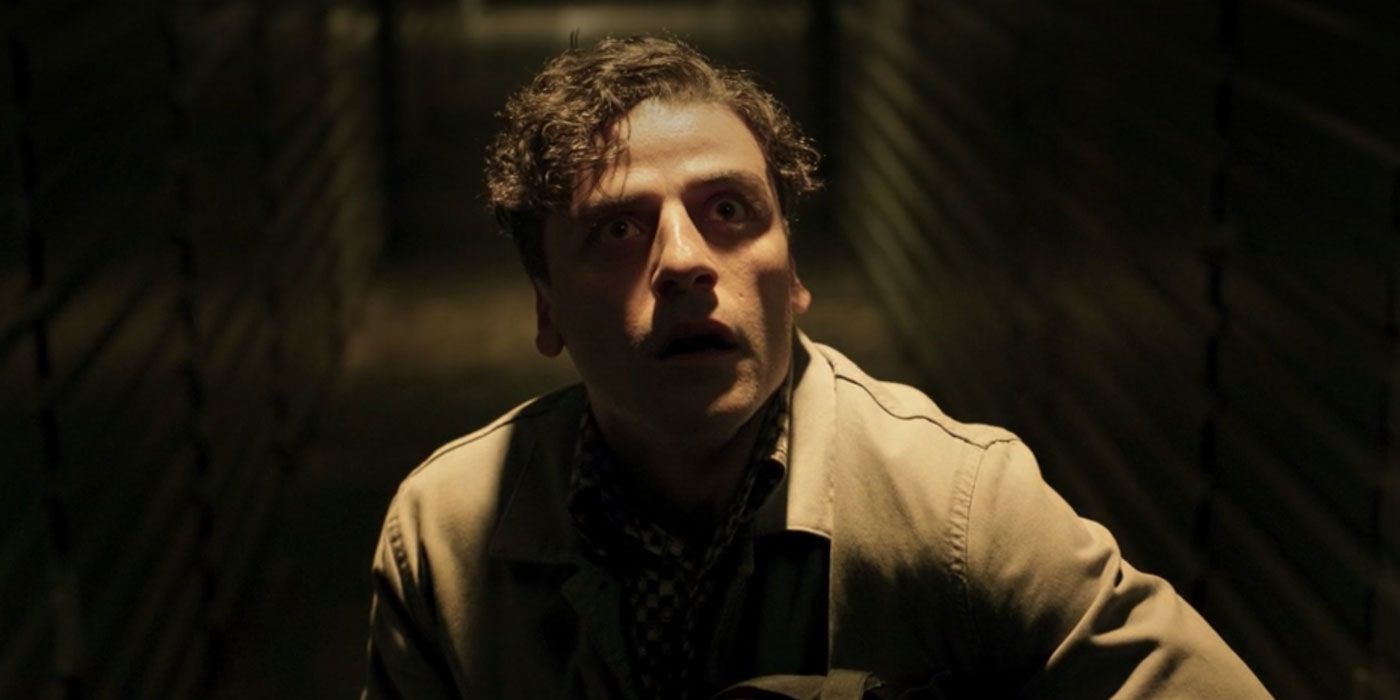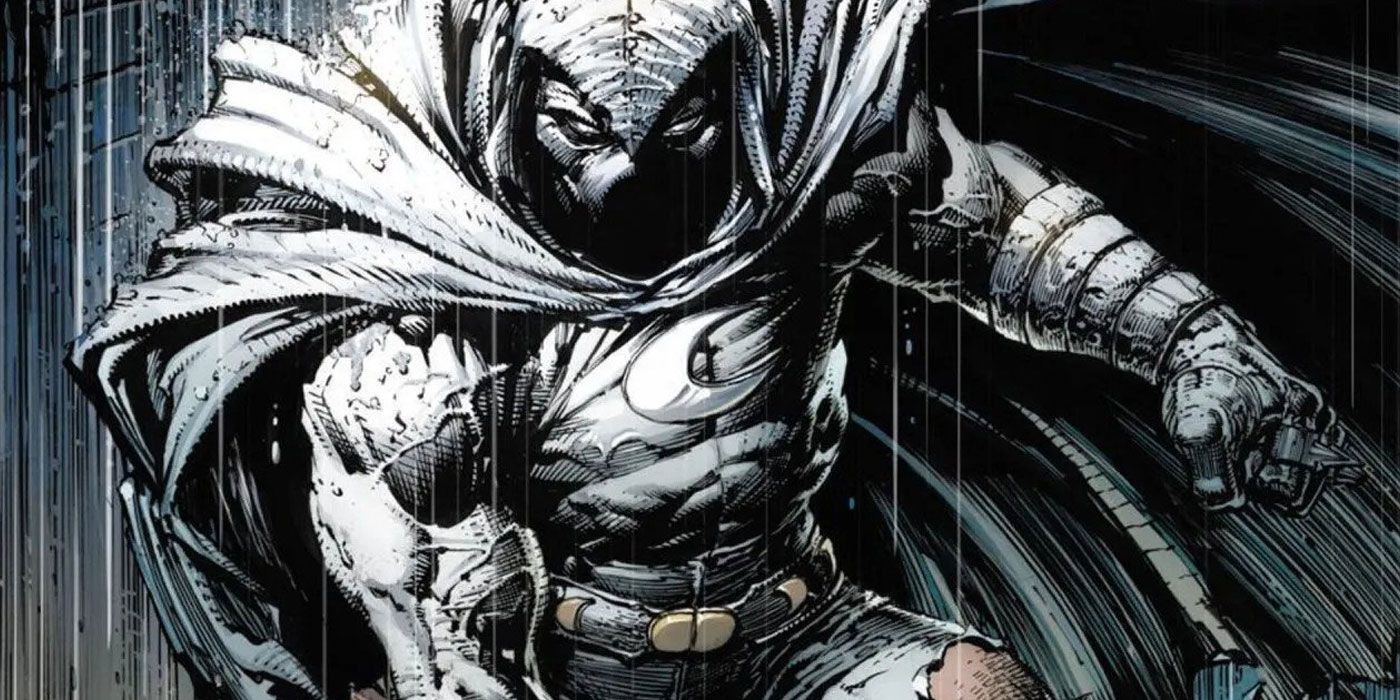Moon Knight is scheduled for release on Disney+ in March 2022, and it carries an excellent opportunity for mental health representation with it. The MCU TV shows have so far had a strong focus on mental health, exploring topics from a variety of directions. The character Moon Knight has a widely misunderstood condition, Dissociative Identity Disorder (DID), which has a history of poor treatment in fiction. Understandably, some audience members have concerns about how well Moon Knight will present its main character’s mental illness, played by actor Oscar Isaac.
Mental health allegories are common in Marvel characters, often forming a core part of their appeal. Moon Knight is slightly different in this regard, as his mental illness is not just allegorical but a central part of his characterization. Moon Knight, aka Marc Spector, knows and understands his condition in comic canon. He was diagnosed at an early age and is both aware and accepting of it, even when those around him have trouble adapting. The trailer for the MCU Moon Knight series, however, has a chaotic and confusing tone which left a few comic readers uncertain about how well the show will handle this aspect of the character. Understandably, removing the character’s understanding of himself may cause some problems for how he’s shown on-screen.
Simply, Moon Knight is an excellent opportunity to further improve the understanding and perception of mental health, but to do so it will need to go beyond the kind of psychological thriller tropes that have already seen plenty of use in cinema. Entire communities are routinely stigmatized for their mental illnesses. As with any marginalized group, a good representation in high-profile popular media, like the way Jinx was handled in Arcane, can play a significant role in improving things for them. The MCU has spent a lot of time exploring mental health, and has already given thought-provoking portrayals of conditions like PTSD. For them to continue this trend with even more stigmatized conditions would be a welcome move, but Moon Knight’s particular mental illness has been so consistently mistreated, it will require care to get right
Moon Knight’s Condition Needs Thoughtful Representation

Marc Spector, the man behind the Moon Knight mask, has Dissociative Identity Disorder (DID). It’s an uncommon condition associated with traumatic childhood events, and it has a history of being over-sensationalized in media. Formerly known as Multiple Personality Disorder (MPD), people with this condition have two or more persistent personality states, accompanied by memory gaps. For superheroes in the MCU and elsewhere, an alter-ego usually refers to a secret identity or character, but people with DID use “alter” in a different way, removing the implication from “alter-ego” of free will, as DID alters are not consciously adopted. Additionally, people with DID may often have other distinct conditions like borderline personality disorder, major depression, or obsessive-compulsive disorder. Each of these has its own set of symptoms but, sadly, also comes with its own set of misconceptions.
DID, in particular, has a long history of mischaracterization, often being used as writing shorthand to make characters seem violent, unpredictable, or duplicitous. When characters with symptoms matching DID are shown in fiction, one or more of their personalities tends to be a villain. Famous examples are Sméagol in Lord of the Rings, with his sinister alter Gollum, or the unnamed narrator of Fight Club and his violent personality, Tyler Durden. It should be stressed though that, in reality, people with DID are no more likely to be violent than anyone else, and the trope of an evil alter is pure fiction. Unfortunately, the overuse of harmful tropes like these in fiction contributes to a genuine lack of understanding and stigmatization of conditions that real people are affected by. With good writing, Moon Knight is in a position to dispel some of these myths.
Misunderstandings of DID also overlap with misunderstandings of a few other conditions. People often mistakenly conflate DID with schizophrenia, even though the two conditions have very different symptoms. Harmful representation in media is one of the main reasons for this confusion and, unfortunately, the misconceptions are so common that they’re shared by audiences and writers alike. This has even included past writers of Marvel’s Moon Knight who have incorrectly referred to his condition as schizophrenia on occasion.
The MCU’s Track Record With Portraying Mental Illness

The MCU’s history of portraying mental illnesses is mixed, with some aspects shown extremely well while others are glossed over. Of course, some of this is a necessary part of storytelling and a 100% accurate portrayal may not always be appropriate. The important thing is to ensure that the finished product doesn’t contain any harmful stereotypes which, in fairness, the MCU usually does reasonably well.
Iron Man 3 shows Tony Stark suffering from PTSD, with anxiety, nightmares, and panic attacks. While this is sometimes played for laughs in the movie, therapists have noted that it is, for the most part, quite a faithful representation of how PTSD can affect people. The story doesn’t shy away from the negative impact it has on Tony after being traumatized by Loki’s attack on New York, and the humor never feels mean-spirited. WandaVision also explores the after-effects of trauma, but from a different angle. Where Tony Stark suffers from flashbacks caused by psychological triggers, Wanda Maximoff distances herself from her trauma through maladaptive daydreaming (as explained by Cinema Therapy, via YouTube). Her superpowers allow her to make her daydreams into something much more real, literally building a fantasy world as a coping mechanism. Another series, Loki, can be read as an extended psychotherapy session for its titular main character with his narcissistic personality disorder, as he’s forced to literally confront himself (or herself) and the things he’s capable of.
These storylines often fall short in a couple of areas though. WandaVision explores the stages of grief, excelling in all stages but depression, which it arguably fails to show with sufficient depth. One of Tony Stark’s panic attacks in Iron Man 3 is cured with improbable speed because of him being told the right thing at the right moment. Loki builds on the characterization which has already been established in the MCU movies but, as a result, it sometimes feels like the character’s narcissism is more stated than shown. Notably, MCU portrayals often falter when it comes to recovery, as a consequence of the fact that on-screen stories need to be compelling. A dramatic third-act recovery obviously makes for a better story than years of therapy and medication. But while this is a flaw in some stories, it could actually work out favorably for Moon Knight and his multiple personalities. DID is a long-term condition that cannot simply be recovered from. Removing the need for the hero to be “cured” of his condition by the ending can lead to a more accurate story. Instead of framing Moon Knight as a broken character who needs to be fixed somehow, tactful writing could highlight how his condition is simply a part of who he is.
How Moon Knight Can Advance Representation

As a heroic character, Moon Knight is in an interesting position for mental health representation. In comics, conditions like DID are usually given to villains. An example is Batman’s antagonist Harvey Dent (Two-Face), whose mental health portrayal is just as problematic as that of any of Batman’s entourage of villains, who tend to end up locked up in Arkham Asylum. The fact that Moon Knight is a hero with this condition gives the opportunity to show a far more sympathetic portrayal, chiefly because understanding the protagonist is an essential part of any good story.
As one of the world’s most popular and recognized transmedia franchises, the MCU has a significant influence on representation in popular culture, and whether good or bad, it’s likely to leave an impression. A good portrayal of DID on-screen could start to rewrite our cultural understanding of the condition and work towards improved representation of mental health more generally. Of course, there’s also the risk of poor representation doing the opposite and cementing the harmful tropes which already exist. From what he’s said in interviews, Oscar Isaac is well aware of this risk, and the impact his character could have, but is willing to make the effort all the same.
With the MCU’s track record, Moon Knight is likely to at least make an effort to portray DID well, though it may still include a few inaccuracies. As long as those inaccuracies don’t support any harmful outdated tropes, however, it’s likely to have an overall positive effect on mental health representation. If nothing else, it can be helpful for people to draw references to well-known fictional characters when explaining their conditions to others. Some people will no doubt want to be optimistic at the possibility they may be able to talk about a superhero like Moon Knight rather than a villain.
Key Release Dates

Doctor Strange In the Multiverse of Madness
Release Date:2022-05-06
Thor: Love and Thunder
Release Date:2022-07-08
Black Panther: Wakanda Forever
Release Date:2022-11-11captain marvel 2
Release Date:2023-07-28
Guardians of the Galaxy Vol. 3
Release Date:2023-05-05
Ant-Man and the Wasp: Quantumania
Release Date:2023-02-17




